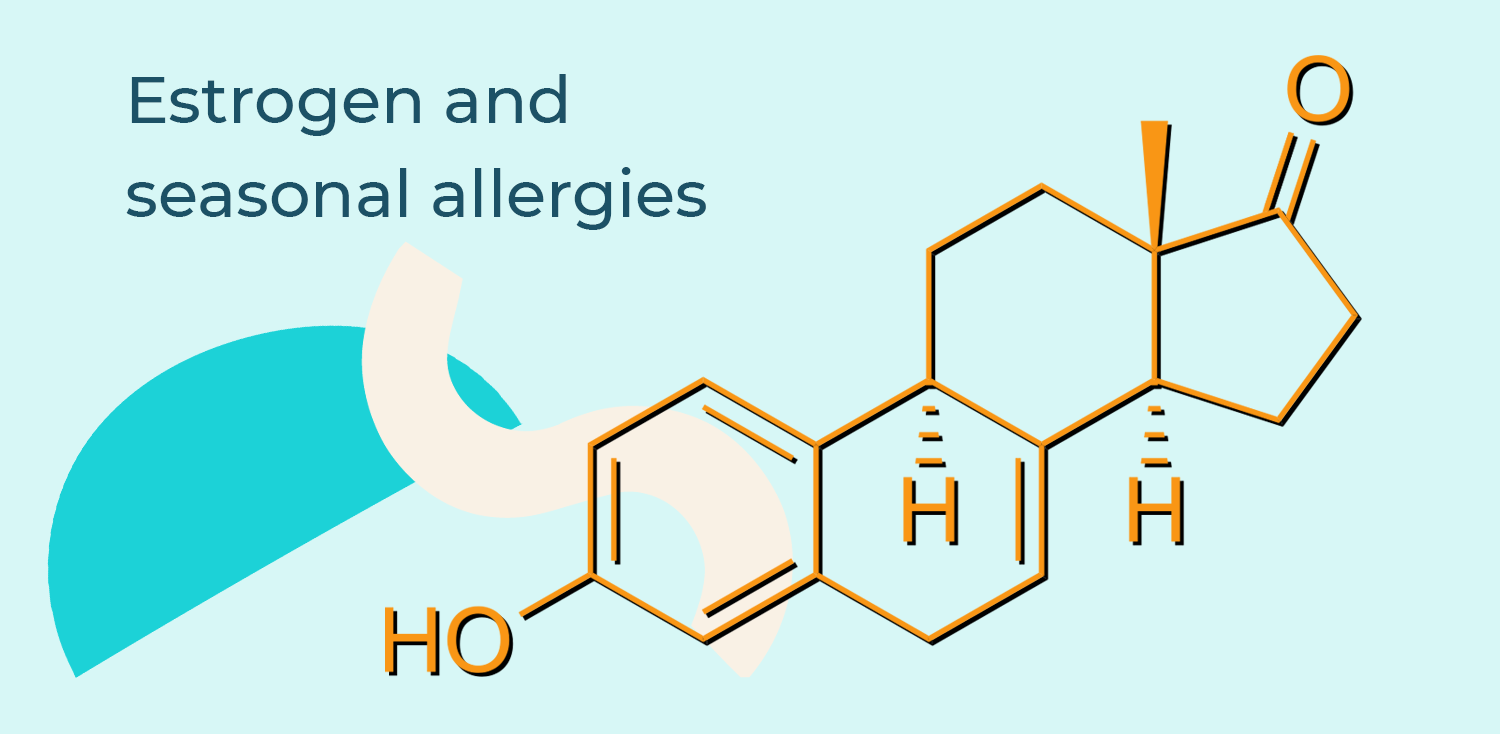Hormones, menopause, and seasonal allergies
By Gabbi Di Marino, content manager and fellow allergy sufferer
Hormones and hay fever
We hate to be the bearer of bad news, but in case you didn’t know (and you probably didn’t because this fact is usually swept under the rug) a person can develop seasonal allergies at all stages of their life, not just childhood or adolescence. And while there isn’t enough significant research to pinpoint why exactly this can occur, one reason that might explain this frustrating phenomenon is the natural fluctuation of hormones that happens within a person’s life.
While testosterone-producing individuals usually experience seasonal allergies during their youth and eventually grow out of it after puberty, it’s those with estrogen-producing bodies that are more likely to develop hay fever later on in their lives (sorry to break to you, but you might just have to add hay fever to your list of things to deal with later on down the line ). These periods of hormone fluctuation can include puberty, child bearing years, and menopause, but what do hormones, specifically estrogen, have to do with seasonal allergies?
Estrogen and the immune system
Let’s start first with what estrogen is. Estrogen is one of the important sex hormones used to help develop and regulate reproductive systems. While other sex hormones like testosterone also have an impact on your immune system, estrogen’s connection is much more powerful (think of the immune system and estrogen like two peas in a pod). It plays a huge role in an immune system’s ability to protect your body, which is obviously very important.
Specifically in menopausal individuals, the lack of estrogen can cause sudden and extreme reactions to things like tree pollen that previously never bothered them. And with the topic of menopause still being a bit taboo and it often not getting the attention it rightly deserves, symptoms like hay fever can go unreported or even ignored. But why does estrogen have such a drastic, and sometimes out of the blue, affect on our nose’s reaction to allergens?
Estrogen and seasonal allergies
Unfortunately, little has been done to explore just why this occurs, but some studies so far have shown that estrogen can increase the production of histamine - our bodies natural response to outside allergens. It’s histamine that causes the infamous symptoms that hay fever is known and dreaded for, things like stuffy nose, itchy eyes and throat, congestion, etc.
One study, though, used mice as their subjects to try and explain this phenomenon, and while these findings may not be completely applicable to our own anatomy (I mean, they are mice after all), they were incredibly interesting nonetheless. When female mice were exposed to allergens, they experienced much more intense and prolonged symptoms compared to the male mice. And when the ovaries of the female mice were later removed, there were practically no differences in symptoms experienced between the two.
Clearly, a lot more research needs to be done to figure out why this phenomenon occurs, as this isn’t a rare happening and affects a rather large demographic of individuals of all ages and developmental stages. Hopefully soon, scientists can get together and really hone in on how to solve this sniffly, bothersome problem for people around the world.

